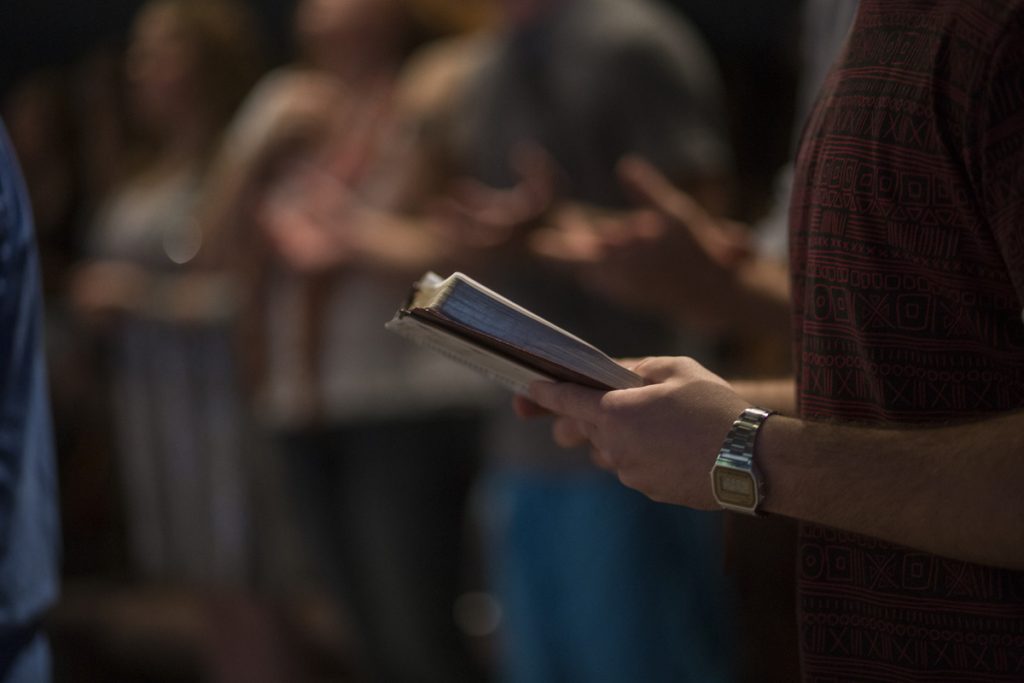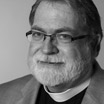When I think of my own children and their commitments to Jesus Christ, to a calling to the various ministries in which they are serving, and in their search of church “homes,” the word I hear frequently is “authentic.” They are longing for authentic Christianity. They are longing to find an expression of following Jesus Christ, through the Church, that takes utterly seriously what he said and did. Jesus said “go and make disciples of all nations and wait for power from on high to equip you and begin in your own community, Jerusalem (Matthew 28:16-20; Luke 24:49; Acts 1:8).
So my son has taken that to heart, found a church in the heart of Chicago with a mission to transform his neighborhood, through a small “gospel community group” of people who live in his neighborhood.
Inwardly, he is developing ancient habits of the heart like Sabbath time that he and his peers are seeking to practice. Upwardly, he is part of a dynamic team that leads others every Sunday morning into a place of deep worship of Jesus Christ and calling upon the power of the Holy Spirit. Outwardly, he is developing relationships with and discipling middle school boys in his neighborhood “from all nations” and from many broken families, on a team of people from his neighborhood Gospel community group who serve together in a ministry called “Wild-Life” (the middle school expression of Young Life).
The flip side to the yearning for authentic Christianity is an aversion to a Christianity that is divided and fighting among itself. I can understand that—especially among younger generations who come from increasingly broken families. Why would one want to join a Church that looks like a broken family?
Unfortunately, that’s what the Anglican Communion looks like right now. We are divided along issues of human sexuality which present themselves as “family fights” over whether to bless same-sex partnerships in the Church and to consecrate openly practicing LGBT persons as ordained leaders—even Bishops—within the Church. But like all false teaching that divides and undermines the Church, these fights over sex are merely the tip of the iceberg. It’s not about sex. The fights are about differences over Christian essentials such as the nature of our humanity, sin, the Biblical doctrine of creation, the authority of the Bible itself in the life of the believer and the Church, and ultimately the definition of the Gospel itself. Is the Gospel of Jesus Christ “come as you are and stay as you are”? Or is it “Come as you are but don’t stay as you are! Find your identity in Jesus and his call on your life, and let him change you from the inside out.”
In a few days Anglican Archbishops, bishops, clergy and lay leaders from the Global South will be meeting in Cairo, Egypt to address this brokenness in the Anglican “family” or Communion of Churches. It’s not enough to define the problem as a leading Anglican theologian, Paul Avis has defined it:
“[Anglicanism] believes that provinces gathered into communions should act in a conciliar fashion within the limits imposed by the divisions in the Church. It [Anglicanism] sets out to extend conciliarity as far and wide as it can until it runs up against the barriers erected by broken communion, rival claims to jurisdiction or serious differences in doctrine or order.” [1]
It’s not enough to say that we are a “family” and make decisions together until we disagree on doctrine and order. Doctrine and order are essential to authentic Christianity, as opposed to a Christianity in which anything goes, and where people are free to do what is right in their own eyes. We may not like everything Jesus says, or the Biblical diagnosis of our human nature as fundamentally flawed and broken by sin, incapable of reform apart from the blood of Jesus Christ and faith in Him alone. But we need to face the truth if we are to get on with our mission to the world. This Biblical truth is the heart of the Gospel and the vision of the Kingdom that gives Christianity its authenticity and compelling call to people of all ages, generations, languages and nations.
It’s not enough to fall back on our Anglican relationships and “bonds of affection” while we turn a blind eye to false teaching that leads people astray. It’s not enough to pretend that the current structures within the “family” or Communion of Anglican Churches will find a way to sort our differences out and make things right someday. The overwhelming evidence is that the situation has gotten much worse under the status quo during the last 20 years. As I observe here, Biblically faithful Anglican leaders from the Global South have been calling “the family” or Communion to repentance for false teaching since their Global South-South Encounter in 1997 in Kuala Lumpur. Instead of acting like the Church did in Acts 15 and meeting as a “proto-council” in prayer, and under the authority of the Bible, leaders at many levels of the Anglican Communion—and particularly in the West—have frustrated that “conciliar” process. And so as Paul Valliere and others have observed, the Anglican “family” is moving in the opposite direction: from a Council to a Lambeth Conference of Bishops only (since 1867), from a Conference to Consulting Instruments like the Primates Meetings and Anglican Consultative Council, from Consulting Instruments to a Canterbury-driven and stalemated Covenant, and from a proposed Covenant with discipline to a Canterbury dominated Committee (Standing Committee of the Anglican Communion) that refuses to take any disciplinary action.
This devolution from a Council, to a Conference, to Consulting Instruments, to a Committee represents ever diminishing circles of authority and decision making which are intentionally designed not to guard the doctrine and order of the Church—indeed, to sit by and tell us that we should simply “move on” while false teaching and “facts on the ground” multiply in Western Churches like TEC, the Anglican Church of Canada, the Scottish Episcopal Church and, yes, the mother Church of England. Things are actually getting worse. False teaching and disorder are accelerating under the status quo. You can read it all here.
This is the situation that faces the Global South gathering next week in Cairo. What can you and I do about it?
1. Pray: Please pray for the Global South and GAFCON leaders who will be gathered in Cairo. Pray for humility among all those gathered, “for all have sinned and fallen short of the glory of God.” (Romans 3:23). Pray that these Godly and faithful leaders will find their unity in the mind of Christ (Philippians 2:5-11), an undivided mind surrendered to the Father’s will and mission.
2. Share: You know, we’ll never find the cure until we begin with an accurate diagnosis of our brokenness. The American Anglican Council does not write the diagnoses we offer to be salacious—but rather to bring matters into the light so that we may have genuine fellowship, authentic Christianity, with each other and so that the blood of Jesus may cleanse us from all our sins (I John1:7-9). Please share this article, and other diagnoses we have written about so that we can pray with insight and foresight.
3. Recommit yourself and your local Anglican Church to “authentic Christianity” No matter what happens in Cairo, we need to follow Jesus in everything he said and did. We need to make disciples of all nations, sharing the transforming love of Jesus Christ in as many ways as we can, in the power of the Holy Spirit, and begin in the neighborhoods and communities God has placed us.
When you think about it, the challenge before Biblically faithful Anglican Leaders of the Global South is to recover authentic Christianity within the Anglican family or Communion of Churches. That’s the ultimate goal. May we embrace that goal with humility, repentance, sacrifice and prayer. Our children will bless us for it, and generations to come.
The Rev. Canon Phil Ashey is President & CEO of the American Anglican Council.
[1] Paul Avis, “Anglican Conciliarity: History, Theology and Practice, “Within the range of political options available within the Church’s tradition, Anglicanism is an expression of conciliar Catholicism.” 11. Documents of The Lambeth Commission on Communion <http://www.anglicancommunion.org/commission/process/lc_commission/docs/200402conciliarity.pdf> Accessed 4 November 2015



